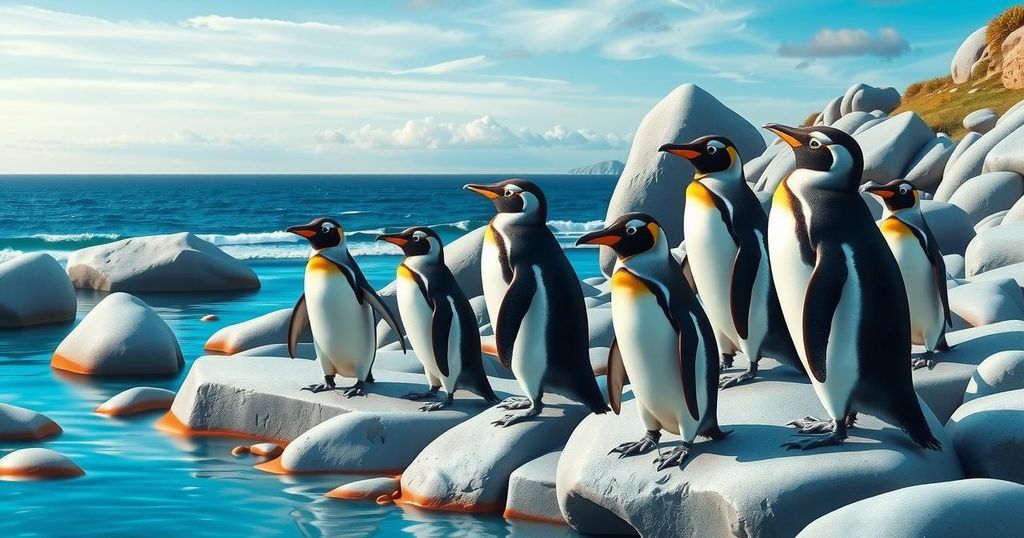Economic Value of South Africa’s African Penguins: A Critical Perspective

Experts indicate that South Africa’s African Penguins are valued between R2 billion and R4.5 billion in 2023, contributing to the economy through tourism and related sectors. The decline of these penguins, classified as critically endangered, is linked to human activities and environmental changes. Strategies for conservation must extend beyond mere fishing area closures to encompass holistic ecosystem management.
Experts assert that South Africa’s African Penguins hold significant economic value, estimated between R2 billion and R4.5 billion in 2023. The debate surrounding the expansion of no-fishing zones reflects a conflict between environmental preservation and the interests of the pelagic fishing industry, which states that it generates R5.5 billion annually and supports approximately 5,100 jobs. However, penguin colonies also generate substantial economic benefits, including tourism, property value, and unique educational opportunities.
The data analyzed for the valuation included 25 years of visitor trends at Simon’s Town’s penguin colony and tourist revenue in the Western Cape. The African Penguin was classified as critically endangered in October 2022 due to a drastic decline in population, threatening its existence within a decade. The Anchor Environmental Consultants’ report emphasizes that the loss of these penguins could tarnish South Africa’s global reputation as an environmental steward.
Addressing the challenge of penguin conservation requires concerted efforts beyond mere island closures. Improved management of ocean health and a comprehensive ecosystem approach is essential to safeguard penguins and avert potential ecological repercussions. The report highlights untapped tourism potential at Bird Island, offering significant opportunities for economic growth and species conservation.
African Penguin populations have drastically fallen from approximately 300,000 in the mid-20th century to just 8,324 breeding pairs in 2023. A combination of human-generated threats—including oil spills, competition for food, and effects from climate change—has exacerbated this decline. Changes in pilchard availability, crucial for the penguins’ survival, have shifted due to environmental factors, compounding their plight.
In 2008, the government initiated experimental fishing area closures, but penguin populations continued to decline. Notably, the Eastern Cape has experienced a concerning annual decline of 13%, influenced by increased maritime traffic and bunker activities disrupting penguin foraging. Recent court action by conservation groups led to the proposed expansion of no-take zones for penguins, though the future impact of these measures remains uncertain. An expert panel recommended that the impacts be evaluated on an individual island basis, recognizing the varied consequences for different sectors of the fishing industry. The settlement regarding closures at six penguin islands is a significant development, although it remains to be seen how it will affect penguin populations positively.
In summary, South Africa’s African Penguins represent a substantial economic asset valued at billions. Efforts to protect these critically endangered species must balance ecological preservation with economic interests. The decline of penguin populations emphasizes the need for comprehensive strategies in marine resource management. Furthermore, recent developments in fishing zone regulations present an opportunity for improved conservation outcomes, which will require persistent evaluation and tailored approaches.
Original Source: groundup.org.za








